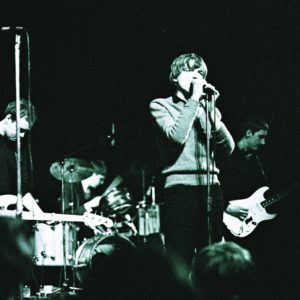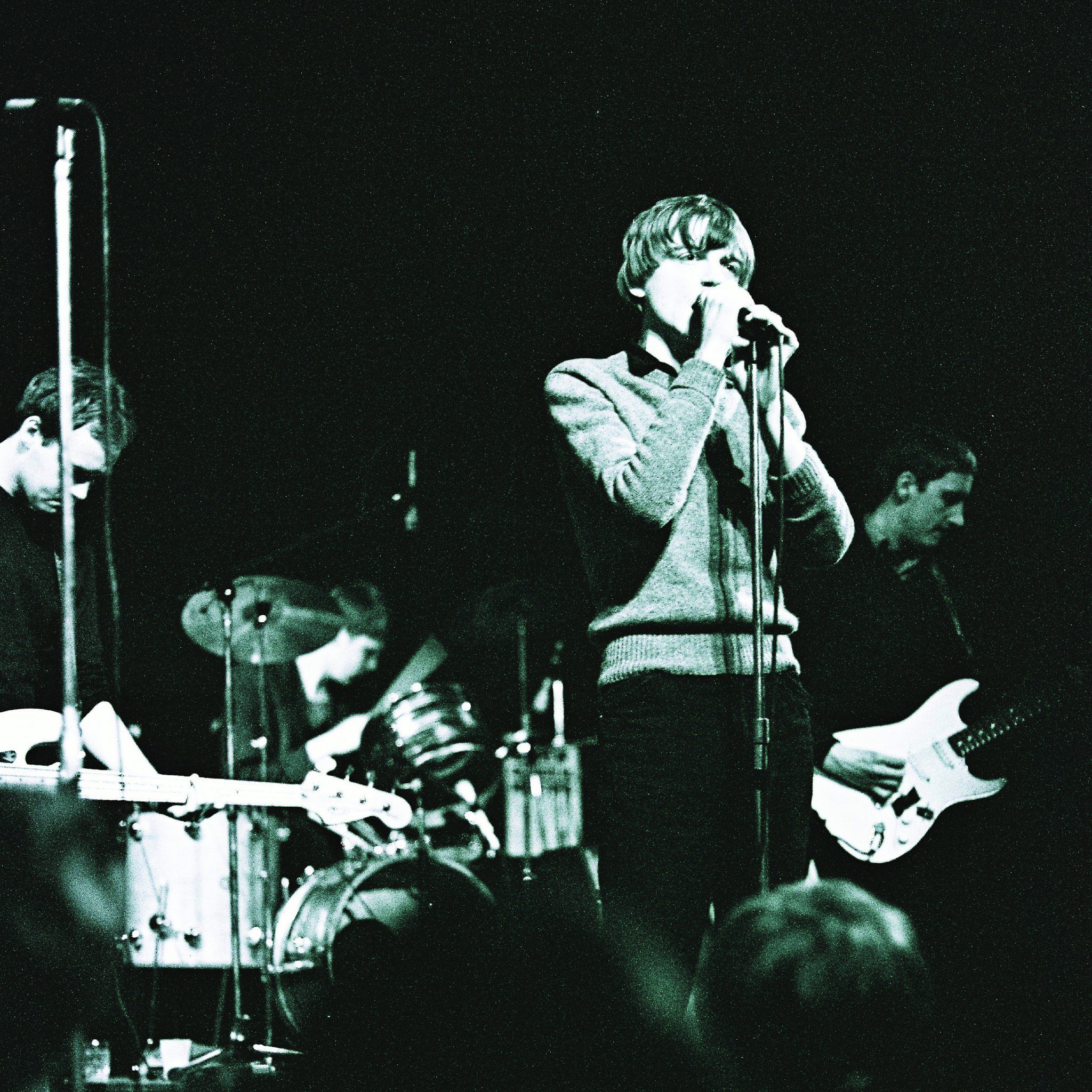 The Fall
The Fall
Live at St. Helens Technical College ’81
CASTLE FACE
8/10
On occasion, I put myself “on assignment” so to speak, not because I’m an expert on the subject at hand, but because I want to be an expert on the subject at hand. Through research on a given musician, I build context via articles, documentary, criticism, and—most essentially—the primary source, the music. For this particular review, my homework was studying The Fall, a band I knew, but not intimately.
Founded in Manchester in 1976, The Fall produced an average of one studio album per year from their debut in 1979 until their final release in 2017. During their 42-year run, The Fall cycled through 66 musicians—the only constant was the hypnotic, violent poetry spewed by mastermind Mark E. Smith. (Smith’s tenure as figurehead led him to once caustically remark, “If it’s me and yer granny on bongos, it’s The Fall.”) In early 2018, he died at age sixty.
Since then, there has been a rather thorough mining of the group’s archives. By my count, Live at St. Helens Technical College ’81 is the seventeenth concert recording to be released to market in the AS (After Smith) era. While that may scan as overkill, each release is from another year; another year brings a slight shift in personnel and therefore a slight shift in sound. The Fall’s protean trajectory is broken up into several phases on Wikipedia with the era of 1980-1982 delineated as the “Classic line-up.” This release—a set played on February 20, 1981—is right in that sweet spot. At the end of April that year, The Fall released the EP Slates. All six of its tracks appear on Live at St. Helens. It’s “a good gig with some high points,” as a site devoted to chronicling each live Fall show wrote of this one.
The whole thing is available on YouTube. So are two other Fall shows from that year—March 17 at Leeds and July 13 in San Francisco, the bill advertising “From England The Fall with Flipper.” The power goes out during the Leeds show and the quality of the sound on the two not released is murkier, but despite being a relatively clear recording, St. Helens doesn’t feature any “Hip Priest” or “Totally Wired,” or “How I Wrote Elastic Man,” songs that are classics of this moment in the band’s career.
The Sex Pistols, who, through their music and rage, convinced a young Smith to trade in the platform of the wharf for the stage, were not very good live—that is, when they were even allowed to play. Smith’s musicians often lacked technical competency, but each is in a herky-jerky synchronicity here.
“Live Fall performances are always a pleasure because they seem to take what already made The Fall great and push it even a bit more,” John Dwyer, whose label, Castle Face released the 1981 soundboard recording exclusively on vinyl, said in a press release. While I don’t take at face-value the words of people attempting to sell me something (even if the person in question has a neat garage rock band), Dwyer is onto something here.
When playing live, The Fall stretch the song to its limits, like The Velvet Underground before them. There isn’t any Grateful Dead–like jamming, no improvisatory experimenting. Instead, this exercise is like the universe expanding, testing how far it can go before it Big Bangs into nothing again.
When I listen to this repetitious stuff on repeat in the kitchen, I do my roommates the courtesy of wearing headphones. It’s the kind of music that’s easy to dislike if you choose to dislike it. The Fall is a rhythm you can fall into. The music is like a dog chasing its tail, it spins in circles like a moon stuck in orbit. At times, it’s offensive (not in content, but in form). There’s a crudeness to The Fall that the faint of heart might never warm up to. St. Helens is unlikely to convert anyone, but for those in the know, it’s a set that chugs along with swagger and determination.







